LITE, which stands for Learning & Innovative Technology Environment, offers an array of cutting-edge educational technologies. It reflects a national trend toward learning commons, said Fleur Eshghi, Ed.D., associate vice president of educational technology research computing. Learning commons are shared collaborative spaces, usually located in libraries, where students, faculty, and staff can meet to brainstorm, socialize, research, and strategize, said Eshghi.
“Learning commons can include the use of traditional materials, like books, but if you need to go somewhere to produce materials or use the latest technology together with your colleagues, this is the place,” said Eshghi.
As a collaboration between The Office of Information Technology and Fordham Libraries, Eshghi said the space is for everyone, but particularly for faculty and students. The center provides both low-tech technologies (a sewing machine) and state-of-the-art computer tech (virtual and augmented reality). Unlike other areas of the library, talking is permitted—even encouraged. There are small lounge areas for breakout sessions. Several tall tables with stools sit beside whiteboards, encouraging small-group brainstorming. There are banks of computer stations where the computers can fold under the table and turn the surface into a conference table.
LITE Features:
- IT Service Desk. An integrated technology support center and information desk with day-to-day IT support from IT professionals and academic peers
- A maker space facility for production with 3D printers, a laser cutter, a large format printer, and a handheld 3D scanner
- Two sound-suppressed recording and podcasting rooms with microphones and green screens
- Several collaborative work areas
- Fordham’s Laptop Loaner program, which lends out laptops, webcams, microphones, and more
- High-end computer workstations for multimedia production, programming, and coding
- An XR lab area for virtual and augmented realities
- A 360 camera
- Assistive technology workstation
- Two Air acoustic pod rooms. Multi-use rooms used for collaborating, recordings, or video conferencing
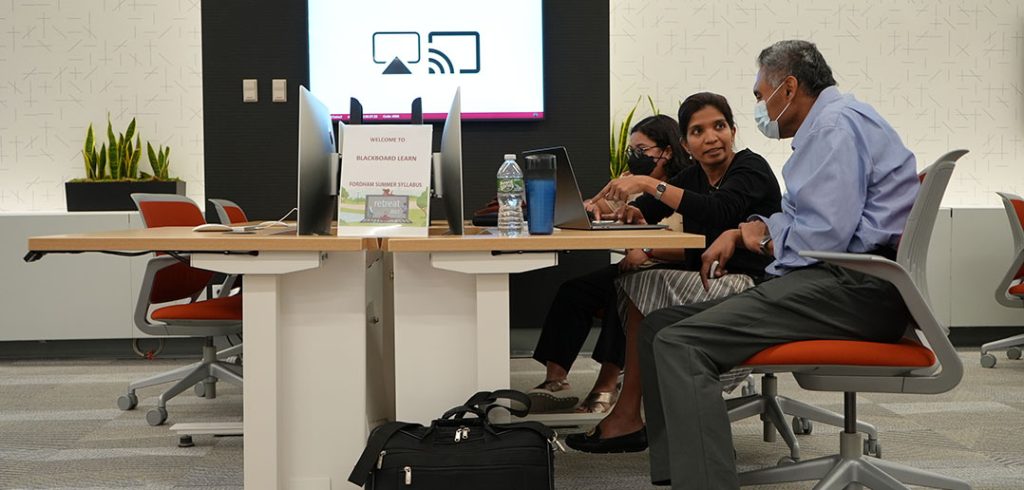 And if there is a snag in using the equipment, not to worry. LITE has a full-time IT staffer on hand in case something goes wrong with the tech.
And if there is a snag in using the equipment, not to worry. LITE has a full-time IT staffer on hand in case something goes wrong with the tech.
“We believe nothing kills the spirit of creativity and momentum than when you have a technical issue and you don’t know where to go, or you have to put everything away and go to another building to get help,” said Eshghi.
In imagining the center, Eshghi surveyed the Fordham community about their needs.
“I interviewed practically every department at the University to see what is it that they see in the future,” said Eshghi. “We have to go hand in hand with the academic departments; we’re an extension to what is going on in the classes and in their labs.”
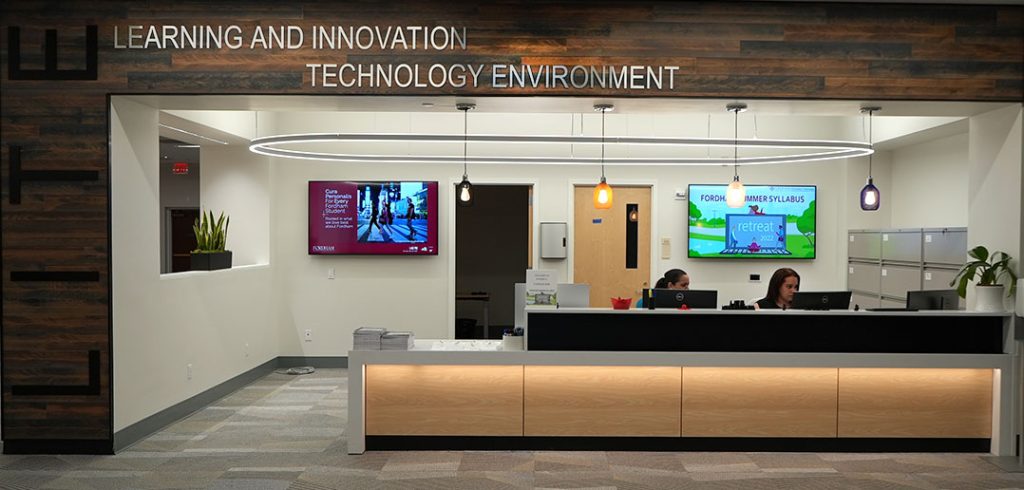
Mix and Match Tech
Nicola Terzulli, the lead in learning space design for the center, said that while each piece of technology can be used on its own, much of it could be combined.
Terzulli noted that not only can a professor combine 360-degree camera and the VR, as in the case of Chartres, but artifacts from the site could also be scanned on the 3-D scanner and then printed out on the 3-D printer. Later, a podcast could also be made about a site.
“Everything can be mixed and matched to the medium,” said Terzulli.
For example, he noted that the anthropology department could use a 3-D scanner to scan a delicate fossil, or even a human skull, and the 3-D printer could then print it out so that students can handle the object without fear of damaging it.
For some professors, there will be a bit of a learning curve when using the technology, whereas for students it may be less so. For example, students who are into gaming may find that using the controls to the VR comes naturally. On a recent visit, LITE tech assistant Jackson Saunders, a sophomore at Fordham College at Rose Hill, assisted Curator of University Art Jennifer Udell, Ph.D., in locating an obscure archeological site in Greece. Udell said that she could definitely see assigning students to virtually visit various sites around the ancient world.
“Then they can teach me,” she said.
For questions about the LITE center, to collaborate, or schedule a tour, please contact the LITE director, Nicole Zeidan, Ed.D., or their staff at [email protected]. For a virtual tour, visit fordham.edu/lite.
]]>Pollak’s latest book Recalculating: Navigate Your Career Through the Changing World of Work, hit home for the attendees, many of whom are recalculating what it means to be an entrepreneur, a student, a consumer, or a teacher in the time of COVID-19.
“Companies and organizations need to recalculate by listening to their employees,” noted Pollak. “One of the positives of COVID is that a lot of employees started having town halls, asking questions and surveying their employees because they aren’t seeing them as frequently. They had to get that insight and didn’t make assumptions. The assumption that many companies made is that younger employees were perfectly happy to work from home for the rest of their lives, but surveys have shown us that it’s the opposite. A lot of young employees want to come back to the office because it’s social, and that’s where they find mentors.”
COVID an Accelerating Mechanism
The conference—which celebrated its 10th anniversary this year—offered Gabelli School students and other attendees a view into the future of work as forecasted by CEOs and other experts.
“In my view, we are in the midst of a tech cycle that’s going to make a big change. In the next five years, we will see a merge of virtual reality, augmented reality, and artificial intelligence. This tech trend will change the way we live,” said Lyron Bentovim, president and CEO at the Glimpse Group, a virtual reality and augmented reality platform.
“The ability for us to be where we need to be without physically being there, to interact with people and objects in a way that catapults us as consumers and big businesses,” said Bentovim, will transform the modern office. “Instead of seeing pictures of us on a screen, I think we will be sitting together in a space without being together.”
The idea of recalculating can be scary, speakers said, but for entrepreneurs, disruption opens doors. COVID has been an accelerating mechanism for many in the e-commerce or virtual industries that provide connectivity, like Zoom, Amazon, and Netflix.
Many existing trends that were on the cusp exploded during COVID-19, including telehealth, said an executive.
“[Before COVID-19] telehealth was the tiniest fraction of how to deliver care. Almost immediately, it became 15, 18, 20% of people’s low hanging fruit. It was always going in that direction, and COVID helped it skip five years ahead. Individual doctors and hospitals who had never considered it before were forced to move in that direction. And through all the tumult, it turns out people like it. Patients like it, doctors like it,” said Reed Mollins, cofounder, and chief strategy officer at Doctor.com.
The conference itself pushed the boundaries of what was possible at a virtual event. Attendees were able to see the latest in virtual reality and augmented reality thanks to reps from PagoniVR and D6 VR. The presentations by the two companies included demos of virtual spaces, avatars, and 3D charting.
Eye Contact Still Matters
The event provided an opportunity for alumni to reconnect with Fordham and each other. Currently head of sales & business development at Block Renovation, Steve Treacy, GSB ’14, described the lessons he learned from working at Mike’s Deli on Arthur Avenue before landing his first big tech job at Tesla.
“It was awesome. I managed their office, did some accounting for them, some social media. Then it got to a point where I needed to quit that job and believe it or not I left in order to join Tesla.”
Treacy often thinks back on a communications class at Fordham that taught him the essentials of eye contact, shaking hands, and how to present in front of a room. Those skills are invaluable in business, he said.
“I also learned how to listen to people. This is one of my biggest assets is to be able to listen to what the customer wants. If it weren’t for that class, I may not have worked at Mike’s Deli and then later Tesla, or now be able to build a team from the ground up at Block Renovation.”
Another central idea present in many of the panels was the notion of controlling what you can and not letting the rest get to you because change is inevitable. Even databases will change dramatically, said Mollins, and that change will bring new opportunities for collaboration.
“The most disruptive technology in the next five years is the interoperability of databases and the digitization of all records and the development of those relationships. One of the side victories of most people moving to three main cloud services is it makes it possible for different software to gain access to each other,” Mollins said.
This event was sponsored by the Gabelli School of Business and Deloitte.
]]>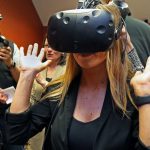
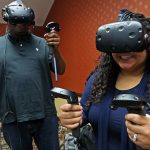
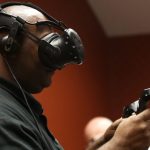
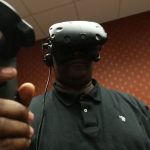
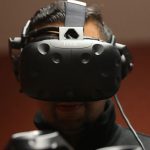
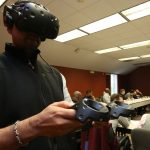
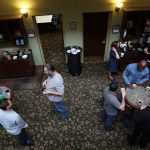


What if you had to walk across a balance beam atop a 1,400-foot skyscraper to lead your team to victory?
That was one of the two virtual reality exercises that the 2018 cohort of the Executive MBA (EMBA) program at the Gabelli School of Business in Westchester found themselves wrestling with in a course led by professor Julita Haber, Ph.D.
The experience was created through a head-mounted device that simulated the fear of heights. The software and equipment was provided by Lyron Bentovim, president and CEO of the Glimpse Group, a virtual and augmented reality (VR/AR) company.
Haber, a clinical assistant professor in the leading people and organizations department, believes the emotional immersive exercise can help students understand the skills and characteristics that are key to building and leading high-performing teams.
“The topic of team dynamics and technology go very well together,” she said. “I wanted to create activities that would evoke emotions and enhance their communication skills to reach a goal.”
It’s a team exercise that’s relevant to students’ work in the program, which thrusts them into leadership situations.
“In general, most of the students in the program have developed an expertise in a specific area, but they want to have more of a bird’s-eye view of an organization to formulate and implement strategies as leaders,” said Francis Petit, associate dean for global initiatives and partnerships at the Gabelli School.
Though EMBA student Ryan Grillo was able to climb the computer-generated skyscraper and walk across the beam successfully, his responsibility to his team didn’t end when he completed the task, he said.
“We were all trying to help the students who were afraid of heights eliminate some of their fears,” said Grillo, who works as a general manager at a company that manufactures elevators and other related products. “I’d say, ‘Walk straight or walk towards my voice. You can do it.’ Some people were able to walk over or at least take baby steps.”
In the second VR/AR exercise, one student from each team was selected to deactivate a bomb. The student received directions from five other team members.
“Our team trusted each other more than I had anticipated,” said Stephanie Miano, GABELLI ’18, a sales manager at an international based luxury brand. “When it came down to the wire, we communicated effectively and did our best to work together.”
“Each exercise provided me with a different framework for my thought process in how to approach a situation,” added William J. Allan, GABELLI ’18, a financial professional at a global business and tech consultancy. “It [showed]me the importance of delegation and teamwork in time-sensitive situations.”
Haber said VR/AR experiences can challenge misconceptions about team work, including the myth that people don’t need to like each other to work well.
“When people like each other, it often helps to achieve a high quality of creative and innovative results,” she said, adding that effective teamwork is crucial to team success. “Well-designed team processes that are coupled with an individual’s ability to influence others can increase a team’s sense of control over the deliverables.”
]]>